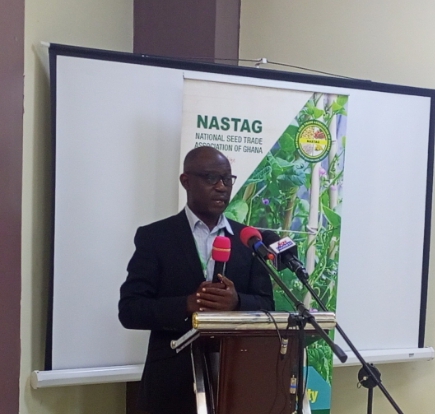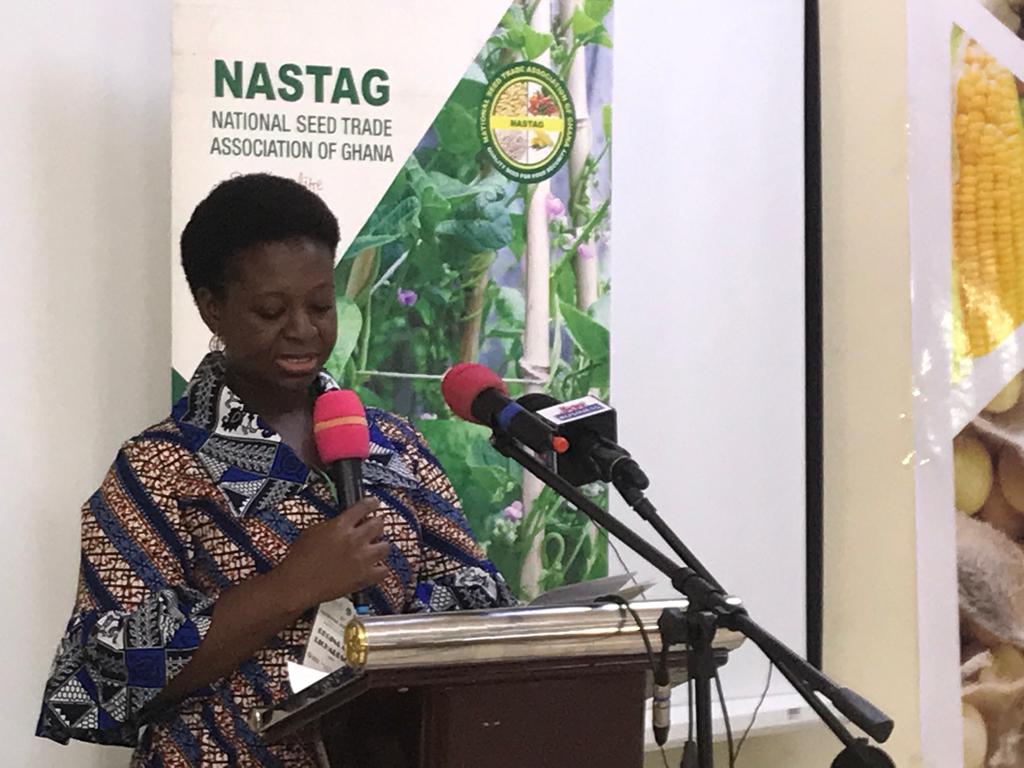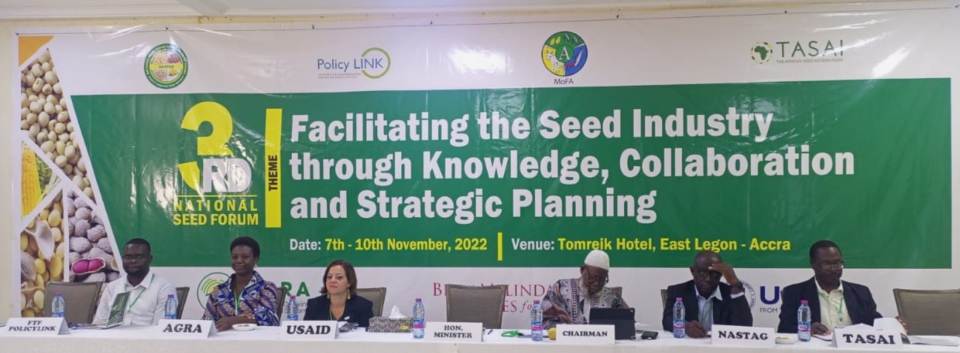
Audio By Carbonatix
Agricultural sector stakeholders from across the country have begun a four-day meeting in Accra to develop a revised Seed Sector Strategy and Investment Plan to help boost the country’s food security.
Officials from the Agriculture Ministry, the National Seed Trade Association of Ghana (NASTAG), The African Seed Access Index (TASAI), and other seed sector stakeholders are meeting from November 7, for the 3rd National Seed Forum.
The Seed Sector Strategy and Investment Plan is expected to strengthen Ghana’s seed industry by promoting the adoption and utilisation of certified seed by the country’s farmers.

Given the current economic crisis in Ghana, which is affecting the lack of fertilizer and seed inputs for farmers, strengthening the seed sector and increasing the use of improved seeds is expected to boost crop yields, and transform the food system that feeds the country, a statement from The Alliance for the Green Revolution in Africa (AGRA), which is spearheading the initiative said.
The four-day workshop follows a successful deployment of the Seed Systems Analysis Tool (SeedSAT), to analyze the functioning of eight key thematic areas of the national seed system and make prioritized recommendations for interventions to support a robust seed sector.
Under the theme, “Facilitating the Seed Industry through Knowledge, Collaboration and Strategic Planning”, the delegates at the National Seed Forum will revise the National Seed Plan (2015) and incorporate the recommendations from the SeedSAT exercise.
The workshop will also allow industry players to network and receive updates on pertinent seed sector issues and strengthened business linkages.
The statement by Rebecca Weaver of AGRA said AGRA is working on this effort with the support of the U.S. Government through the U.S. Agency for International Development (USAID), and the Bill & Melinda Gates Foundation (BMGF), under the Partnership for Inclusive Agricultural Transformation in Africa (PIATA) umbrella.

It said Ghana’s seed sector has made tremendous growth in the past few years, with the development and availability of improved and locally adapted seed varieties.
However, the adoption is still marginal, with just about 30% of the farmers using the improved varieties.
The slow pace of adoption is linked to inadequate compliance with seed legislation by various key seed value chain operators, and the disregard of the rules and procedures of the Seed Certification and Standard Regulations.
Latest Stories
-
AU flatly rejects Somaliland bid, reaffirms Somalia’s unity
3 hours -
Mali rally to claim draw against AFCON host Morocco
4 hours -
Man City players ‘incredibly disciplined’ – Guardiola
4 hours -
How to get rid of unwanted Christmas presents – without being found out
4 hours -
Zelensky plans to meet Trump on Sunday for talks on ending Russian war
4 hours -
Thousands of US flights disrupted as winter storm looms
4 hours -
US judge blocks detention of British social media campaigner
4 hours -
Gun Amnesty: Greater Accra leads in weapons surrendered
5 hours -
Dave Bishop outlines vision as he seeks Ghana Boxing Federation executive board position
5 hours -
Former Ivory Coast coach Gasset dies
6 hours -
An Open Letter to the Deputy Attorney General, Dr Justice Srem-Sai
6 hours -
Humour at its finest at Kumasi Comedy Show
6 hours -
Police Christmas special operation: 101 suspects arrested in Greater Accra
7 hours -
15 arrested after sporadic shooting at Ho central mosque
7 hours -
GES condemns alleged theft of food supplies at Awaso STEM SHS
7 hours

